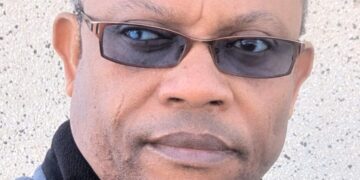By Agbor Ndoma Agbor
In the corridors of power, where policies are made, destinies shaped, and nations are built, a sinister silence festers—one that has long strangled the essence of good governance in Nigeria. This silence, a collective conspiracy by political elites, bureaucrats, and even the masses, continues to fuel corruption, stifle accountability, and deepen the woes of the nation. The culture of secrecy and willful neglect has become an unwritten code in Nigeria’s political sphere, allowing impunity to reign supreme.
Nigeria, a country rich in human and natural resources, has been shackled by an enduring paradox: the louder the cries of the suffering masses, the more deafening the silence from those in power and pulpits. Scandals break out, funds are looted, projects are abandoned, yet there is little to no consequence for the perpetrators. The very institutions meant to uphold transparency and justice are often complicit in maintaining this veil of secrecy.
The conspiracy of silence manifests in various forms. From the refusal of government officials to disclose critical information to the suppression of investigative journalism, Nigeria’s democratic space continues to shrink. Whistleblowers, instead of being protected, are intimidated or eliminated, reinforcing a culture where silence is safer than speaking out.
Politicians, irrespective of their party affiliations, have mastered the art of looking the other way when it suits their interests. During election campaigns, they make grand promises of fighting corruption and ensuring transparency, but once in office, they conveniently develop selective amnesia. They form alliances that transcend political parties, shielding one another from scrutiny in a bipartisan dance of mutual protection.
Even when glaring evidence of corruption surfaces, the political class engages in blame games and endless or no investigations that lead nowhere. Committees are set up to probe scandals, but their findings are either buried in bureaucratic processes or manipulated to protect the guilty. The Nigerian people are left disillusioned, watching the same cycle repeat itself like a tragic play with no end.
The judiciary, often described as the last hope of the common man, is not exempt from this conspiracy of silence. While some judges remain steadfast in their duty, others succumb to political pressure, delaying cases for years or delivering questionable rulings that favor the corrupt elite. Law enforcement agencies, too, are caught in the web of this conspiracy. The Economic and Financial Crimes Commission (EFCC) and other anti-graft bodies occasionally parade suspects, but convictions remain rare, and high-profile cases are often swept under the carpet.
Despite these challenges, civil society groups and the media remain the last bastions of truth and accountability-seriously I don’t think so, Investigative journalists risk their lives to expose corruption, while activists and the Gen-Z continue to bark and rant on social media. However, without an effective legal framework to protect them, their efforts often lead to personal risks rather than systemic change.
To dismantle this conspiracy of silence, Nigerians must demand a new order—one where accountability is not optional. This requires the strengthening of institutions, the enforcement of whistleblower protection laws, and a judiciary that operates free from political influence.
Moreover, the masses must rise beyond passive complaints and take an active role in governance. Social media activism, voter education, grassroots mobilization, and political participation are potent tools that can disrupt the cycle of silence. If the people refuse to be complicit in this unholy alliance of secrecy, change can be achieved.
Nigeria stands at a crossroad. The stakes are high, the choice is clear: continue in the shadows of silence or break free and demand the governance you truly deserves.
Agbor Ndoma Agbor, Ex














